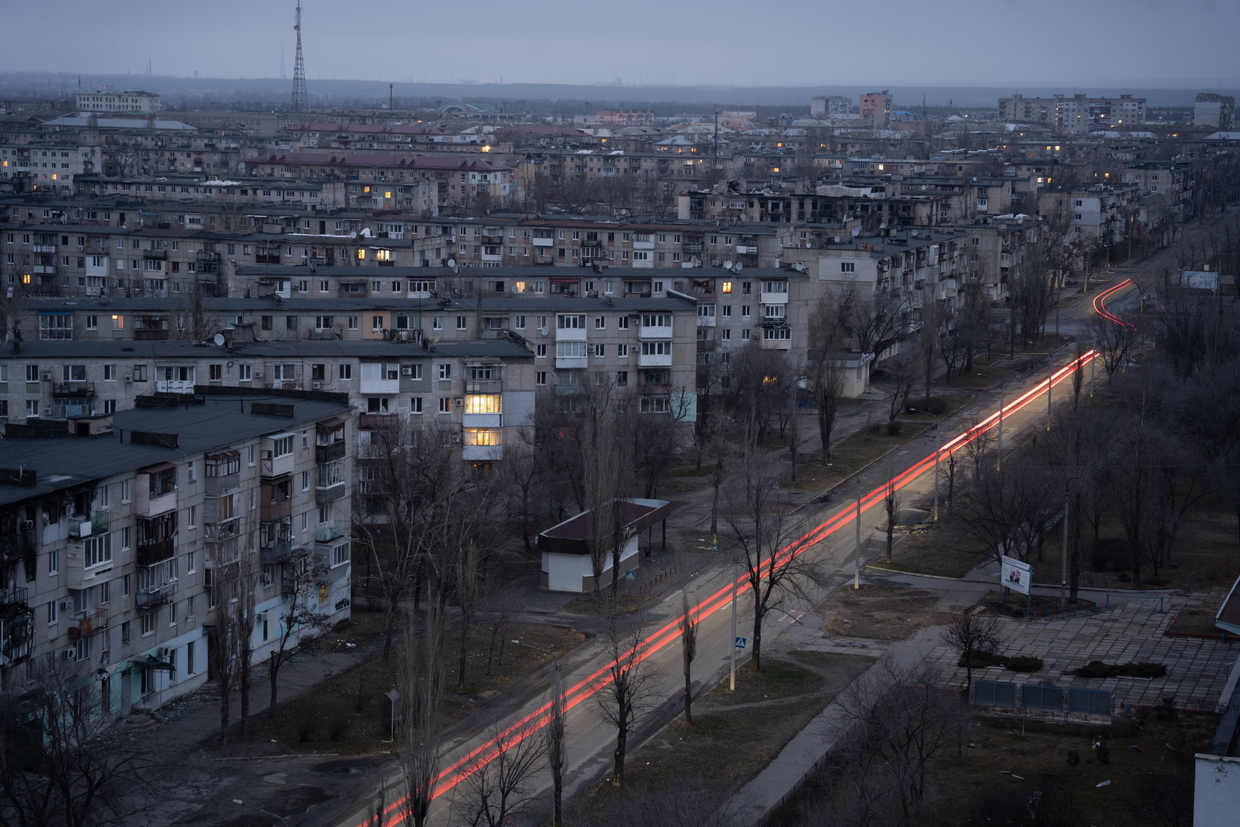Photo report: How a key Lugansk region city, devastated by retreating Ukrainians, is springing back to life
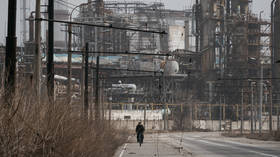
Severodonetsk is perhaps not as well known as other Donbass cities such as Mariupol, Artyomovsk (Bakhmut), Donetsk, or Lugansk. However, the battles waged there in the spring of last year were significant for both Russia and Ukraine.
For over eight years, this industrial hub with a population of around 100,000 – in the western part of the Lugansk People’s Republic – (LPR) was a stronghold of Kiev's military. This happened despite the feelings of its residents – in fact, back in 2014, it was in Severodonetsk and nearby Lisichansk that the Lugansk militia was formed under the leadership of field commanders Pavel Dremov and Aleksey Mozgovoy.
At that time, local forces could not retain control of the city, whose residents voted for independence from Ukraine in a 2014 referendum. On July 22, that year, Kiev's forces captured Severodonetsk, and for almost eight years it was under Ukrainian control. But on June 25, 2022, the situation changed. This time, President Vladimir Zelensky's troops were forced to beat a hasty retreat while Russian soldiers and the People’s Militia of the LPR entered took advantage. A week later, LPR authorities announced the complete liberation of the republic.
However, for Severodonetsk, that wasn’t the end of the story. Over the past ten months, aided by Russia’s central and regional authorities, the city has been recovering from the scars left by fierce battles.
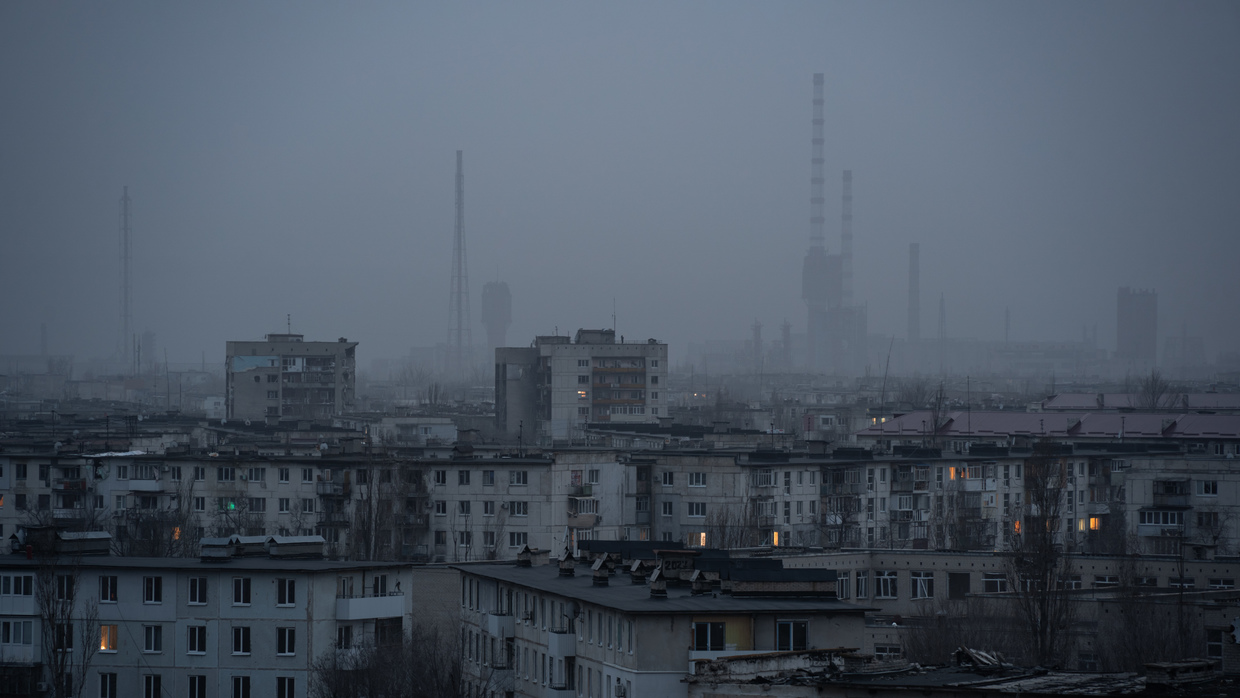
How Ukrainian forces destroyed the city
Although Severodonetsk was spared from battles as bloody as the ones that shook the likes of Mariupol, destruction is visible throughout the city. The Azot chemical plant – often compared to Mariupol’s Azovstal because Ukrainian servicemen and foreign mercenaries similarly went into hiding there – was practically unharmed. Most of the damage affected the administrative buildings and entry routes, but the production facilities remained intact. In February of this year, city authorities announced that Azot was technically ready to resume operations – all that remained was to receive approval from the management company.
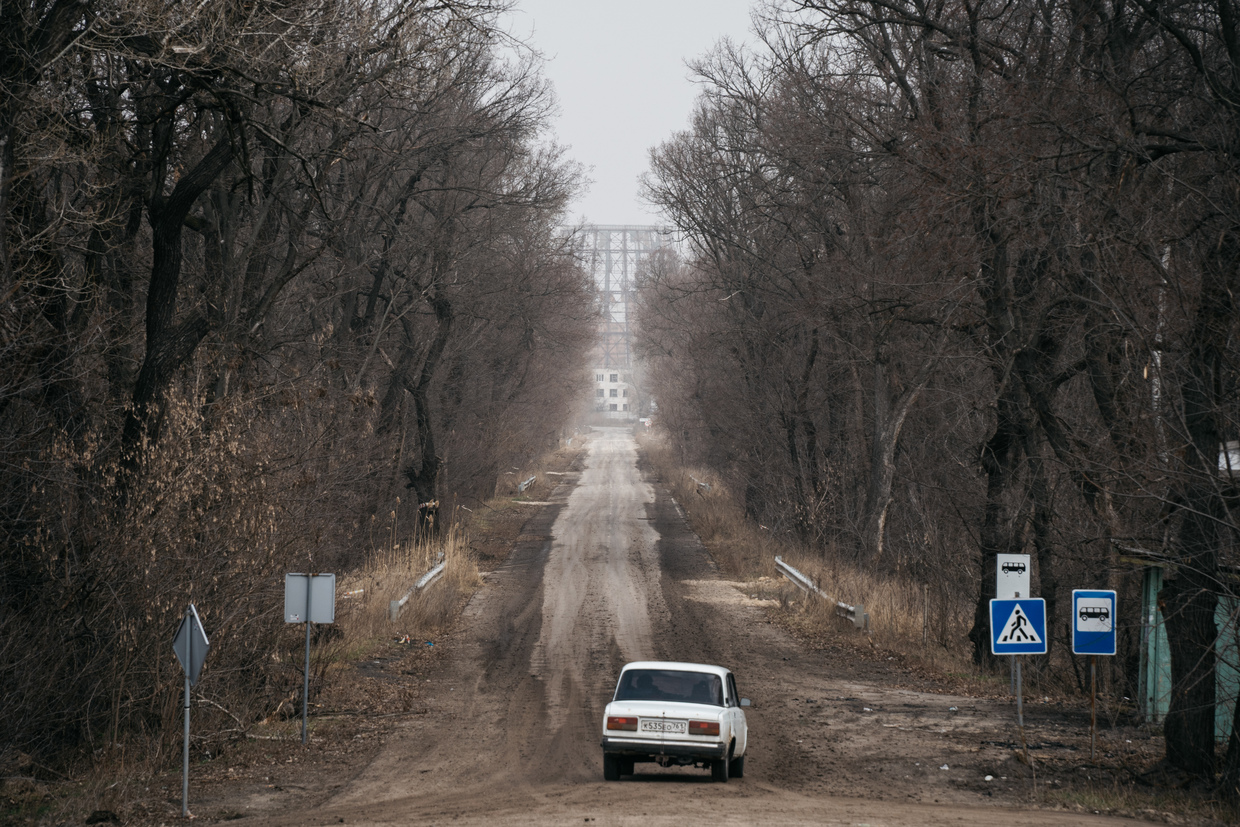
Azot did not suffer the same fate as Azovstal because to avoid being surrounded by Russian troops, Ukrainian forces were forced to retreat. On their way out, they intentionally left the city in ruins. Locals told me how a Ukrainian tank stood at an intersection and fired in all directions at the surrounding houses. Whenever possible, Ukrainians use a scorched-earth policy, destroying towns and villages during their retreat. As a result, the economy and infrastructure are completely destroyed and restoration requires huge investment.
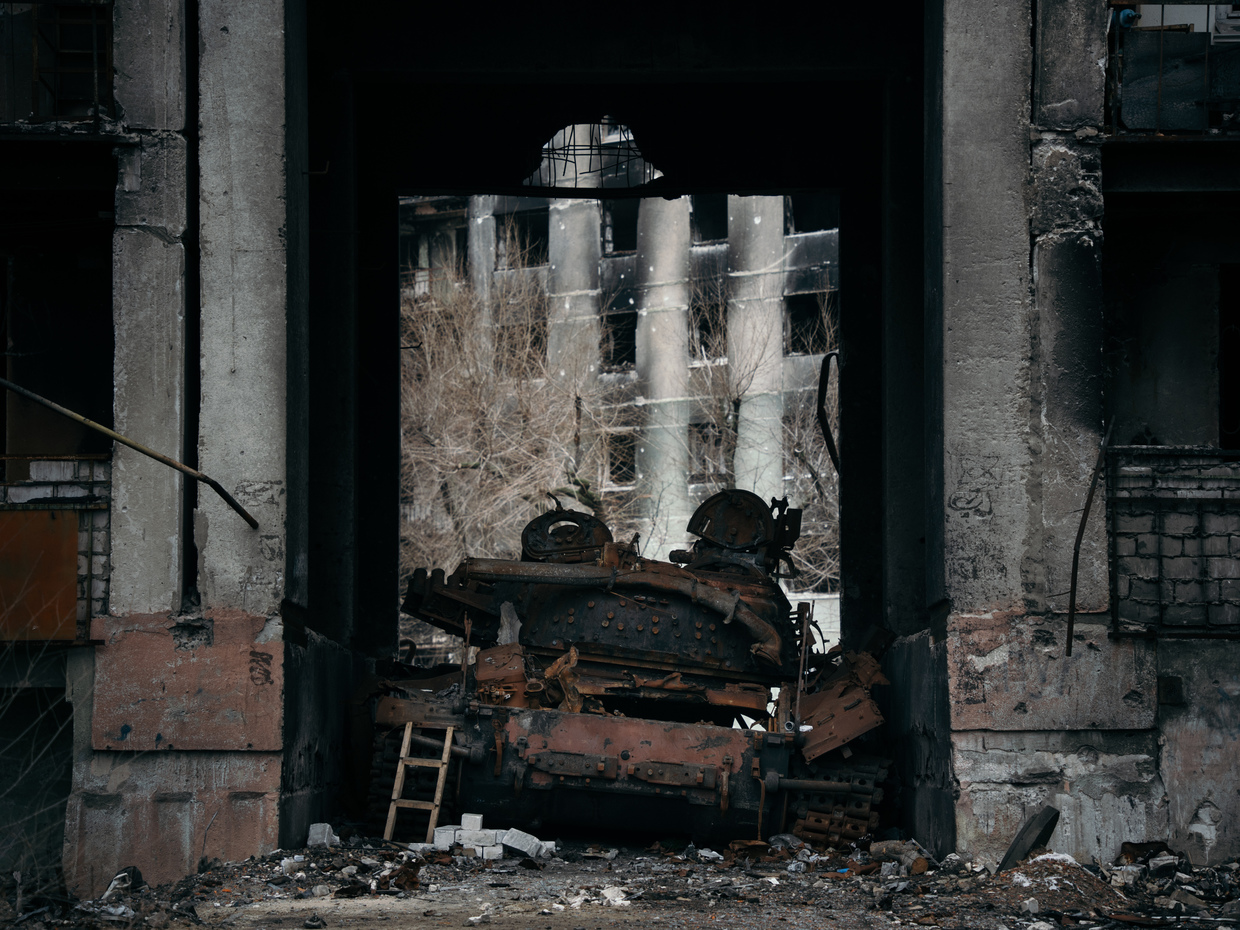
In addition to the plant and residential areas, Ukrainian troops also used social facilities, including educational institutions, as places of deployment. One of them was School No.4, located in the city’s 79th Microdistrict. The presence of Ukrainian troops was evident from the improvised pillboxes in the basements, reinforced with sandbags.
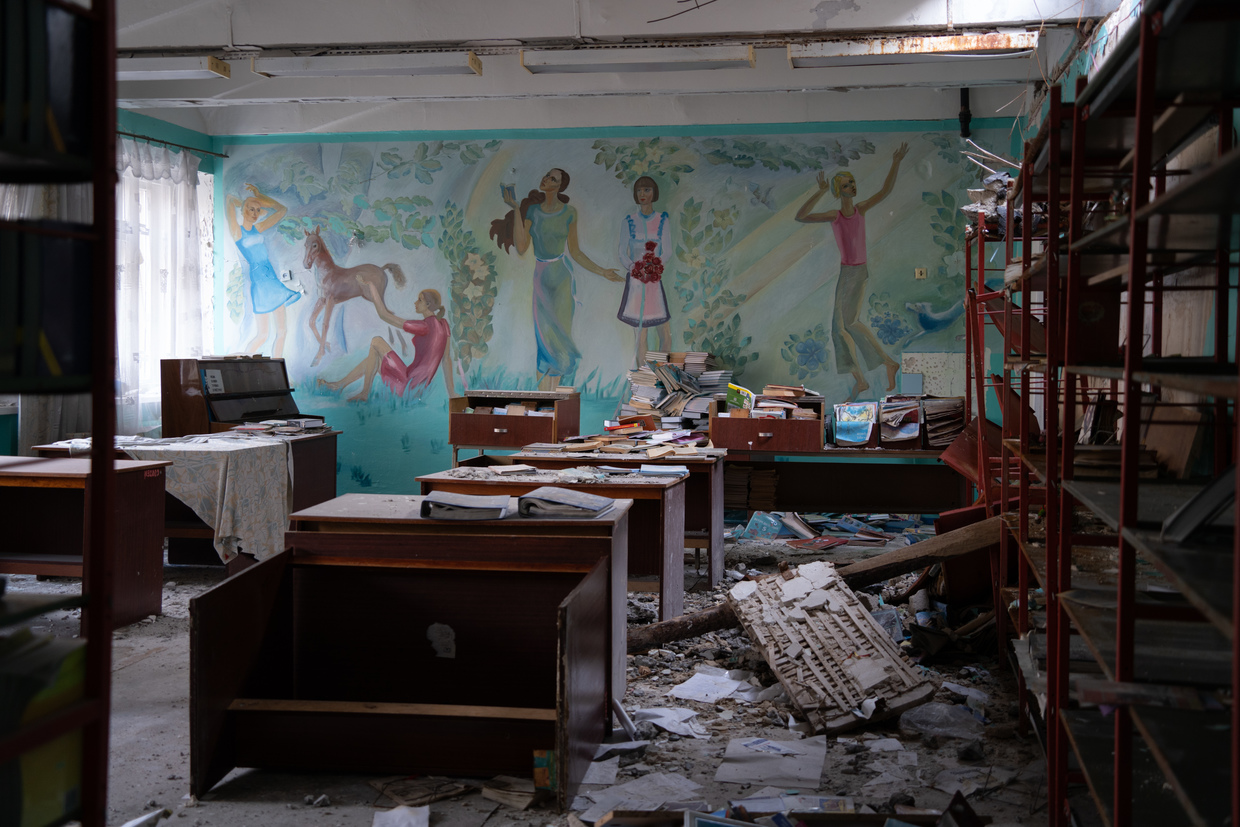
Many educational facilities in Severodonetsk remain abandoned. So far, construction workers from Russia have managed to rebuild only a few schools and kindergartens. Presently, about 1,400 children study in these facilities.
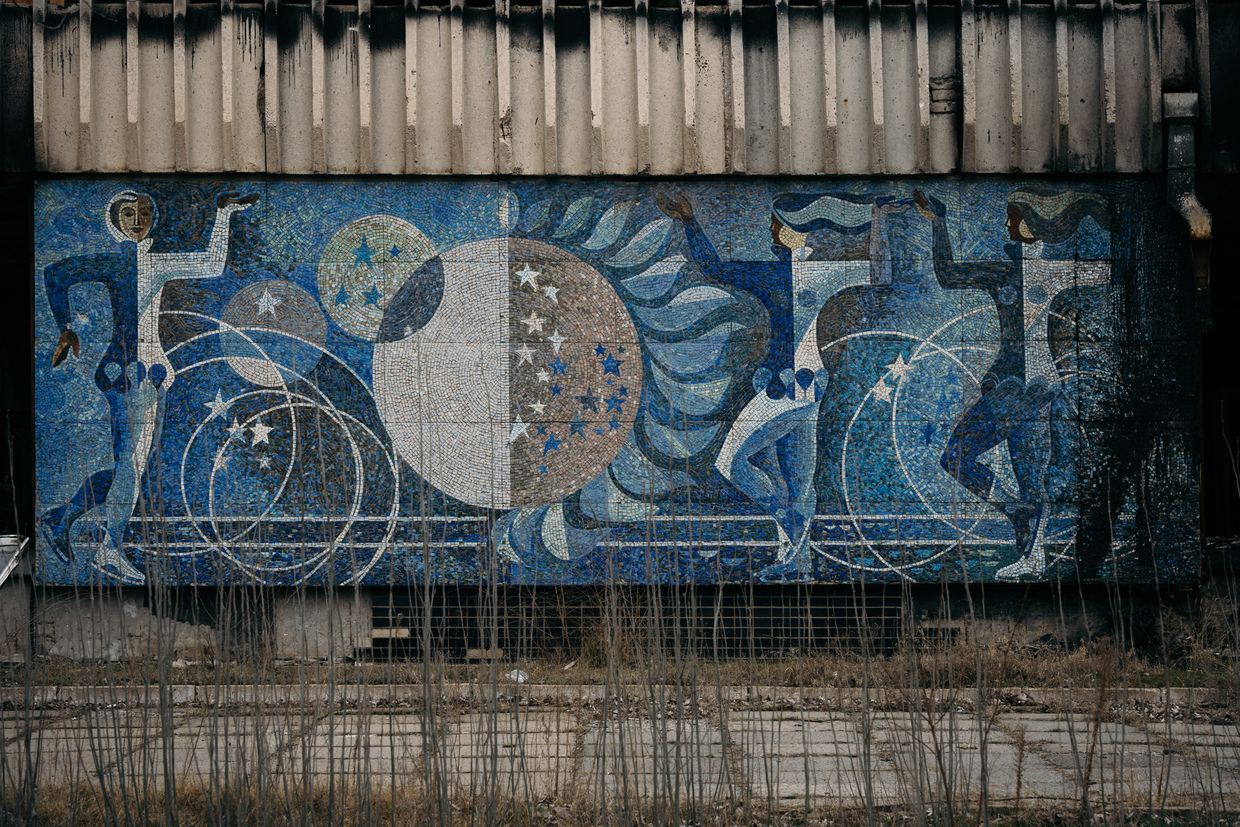
On leaving the city, the Ukrainians moved all their forces to neighboring Lisichansk and attacked Severodonetsk from there. Presently, the front line is 30km away from the city. Despite the distance, thundering artillery is audible day and night. Today, shells no longer reach Severodonetsk, but many houses and streets attacked last summer have been damaged beyond repair.
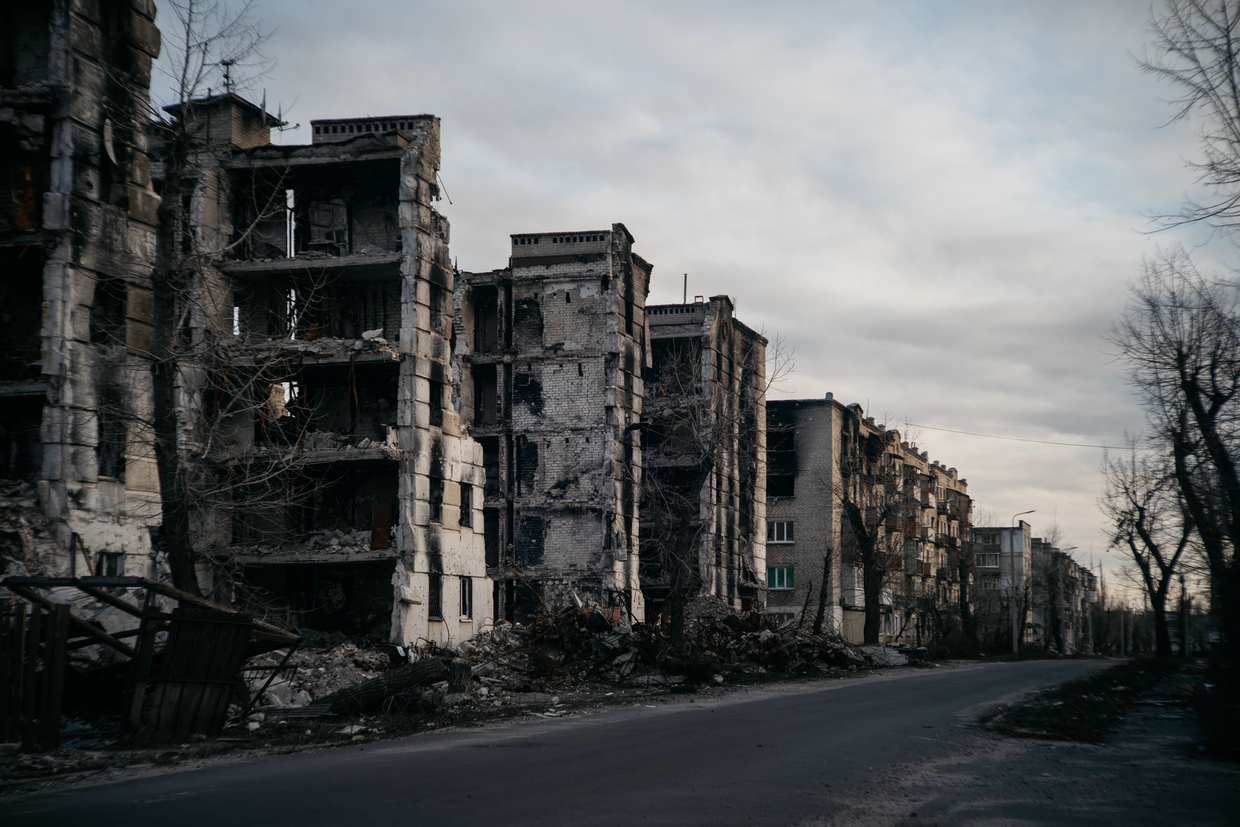
Both the city and its suburbs were destroyed as a result of the attacks. During their retreat at the end of June 2022, Ukrainian forces blew up a bridge to stop the advance of Russian troops. However, damaging the infrastructure did not help the Ukrainian army – Lisichansk, located on the opposite side of the Seversky Donets River, was occupied by Russian forces by early July.
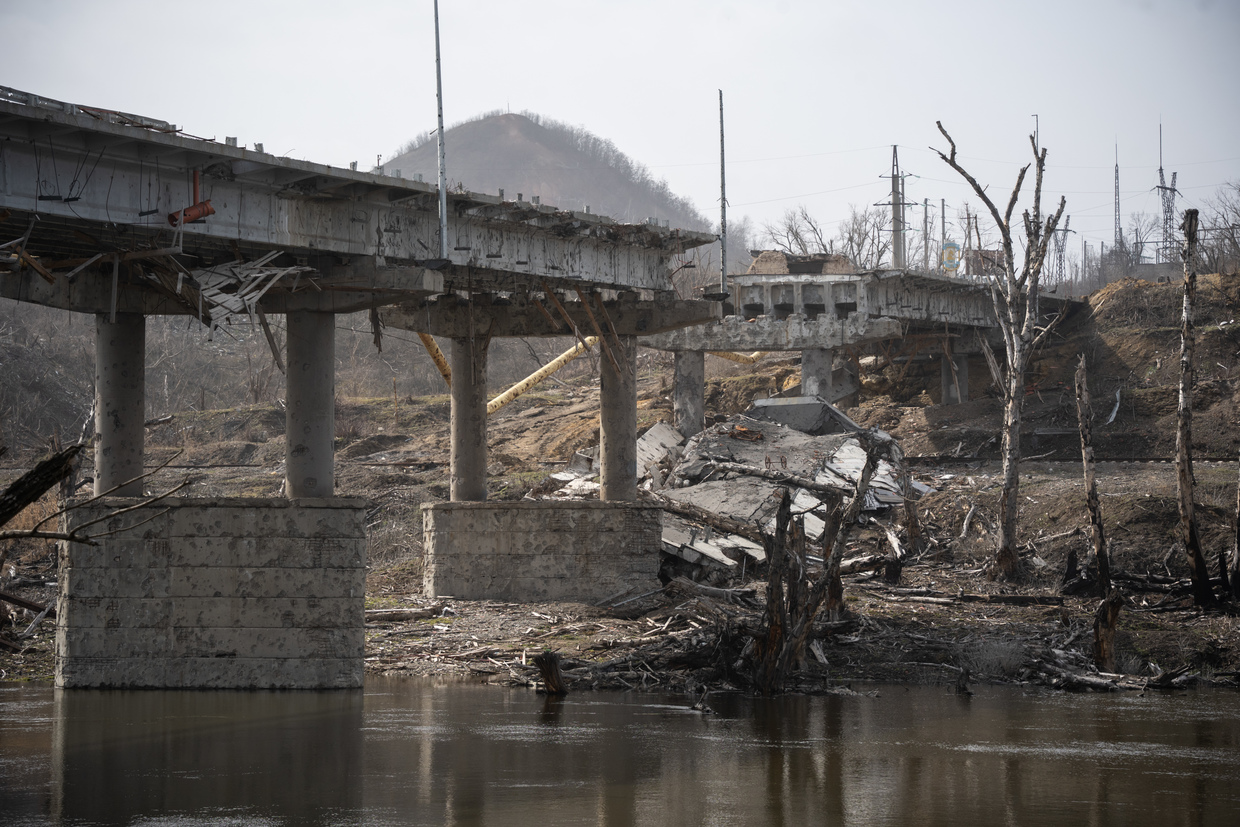
The retreat wasn’t an easy one for the Ukrainians, as evidenced by the scorched armored vehicles cluttered around the suburbs of Severodonetsk.
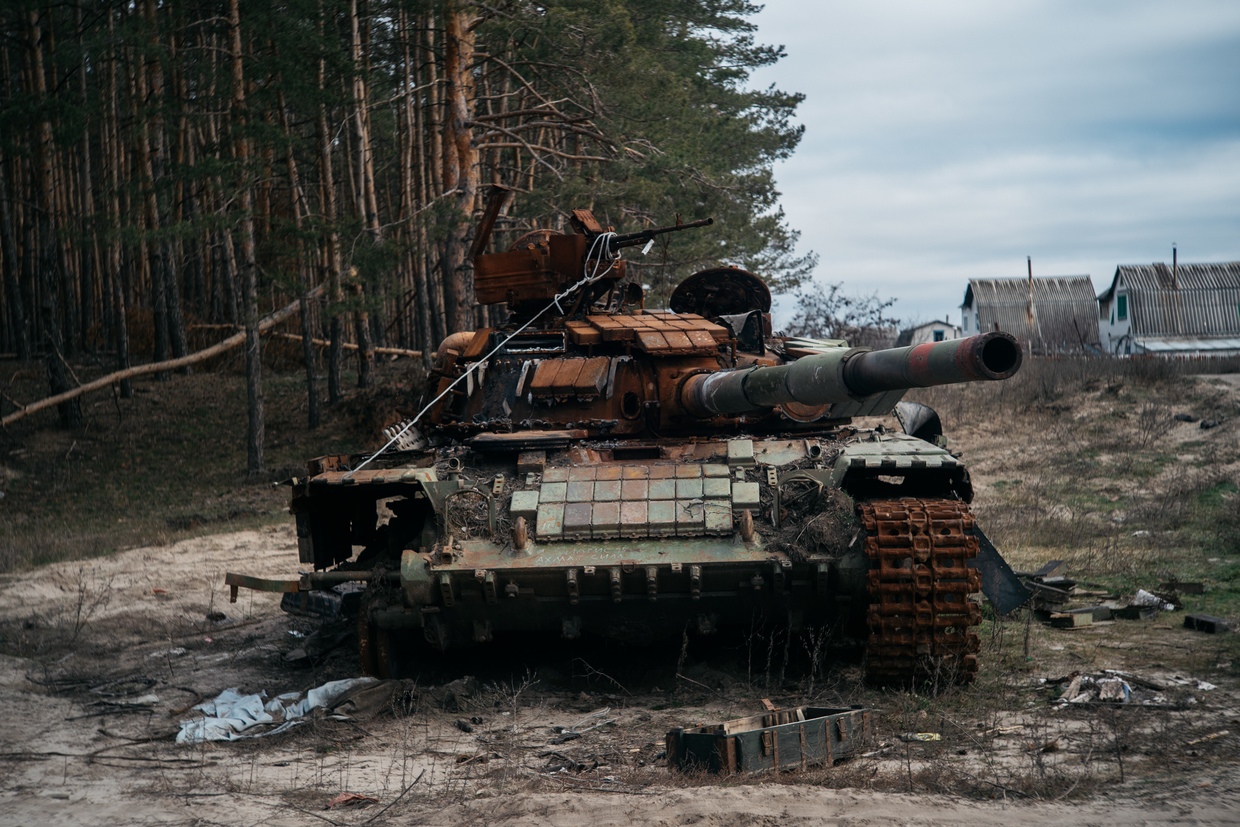
In one of Severodonetsk’s most severely damaged neighborhoods, I met a man carrying buckets of water home. As it turned out, his apartment was the only one left intact in his part of the building. He lived on the ninth floor together with his wife, daughter, and parents. The man constructed a wood-burning stove for heating and connected the wiring in his apartment to the nearest functioning power line.
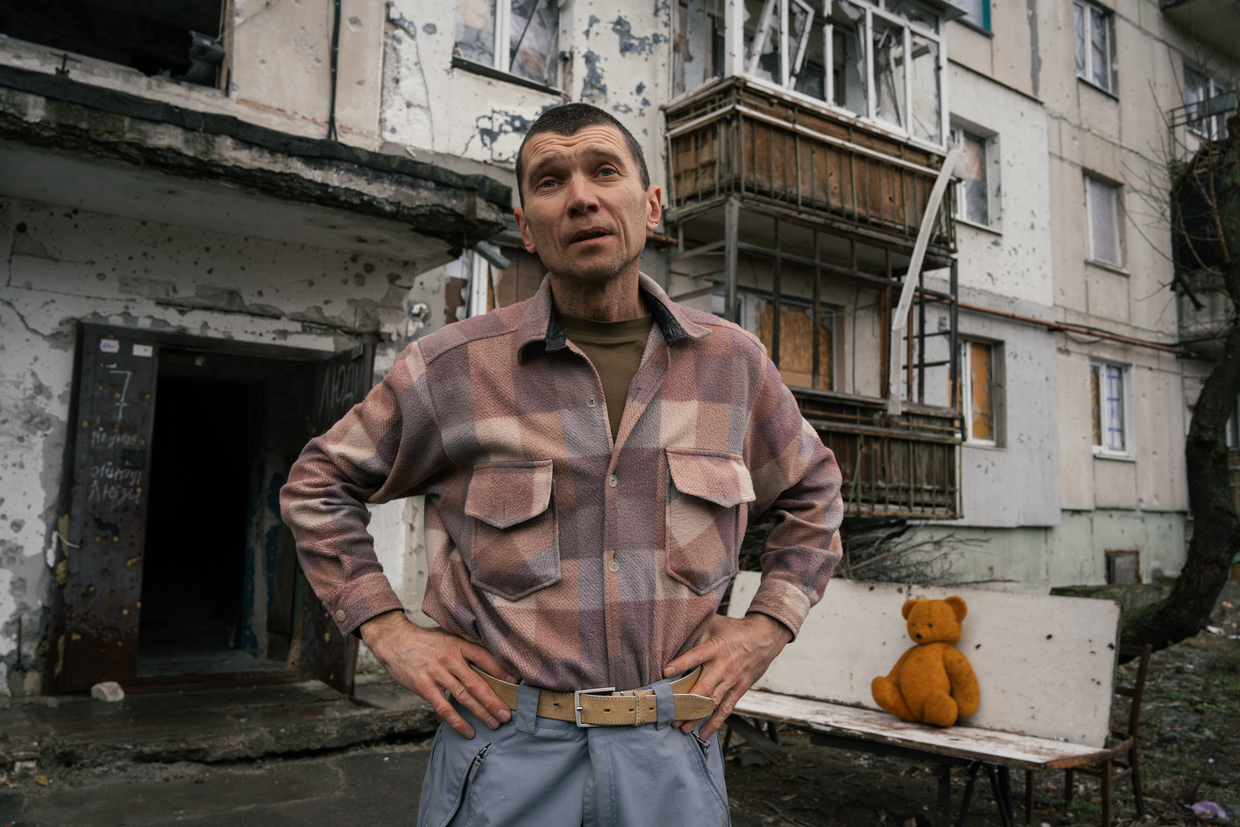
His family was very friendly. The daughter played the accordion for us, and the parents offered us tea with sandwiches and sweets.
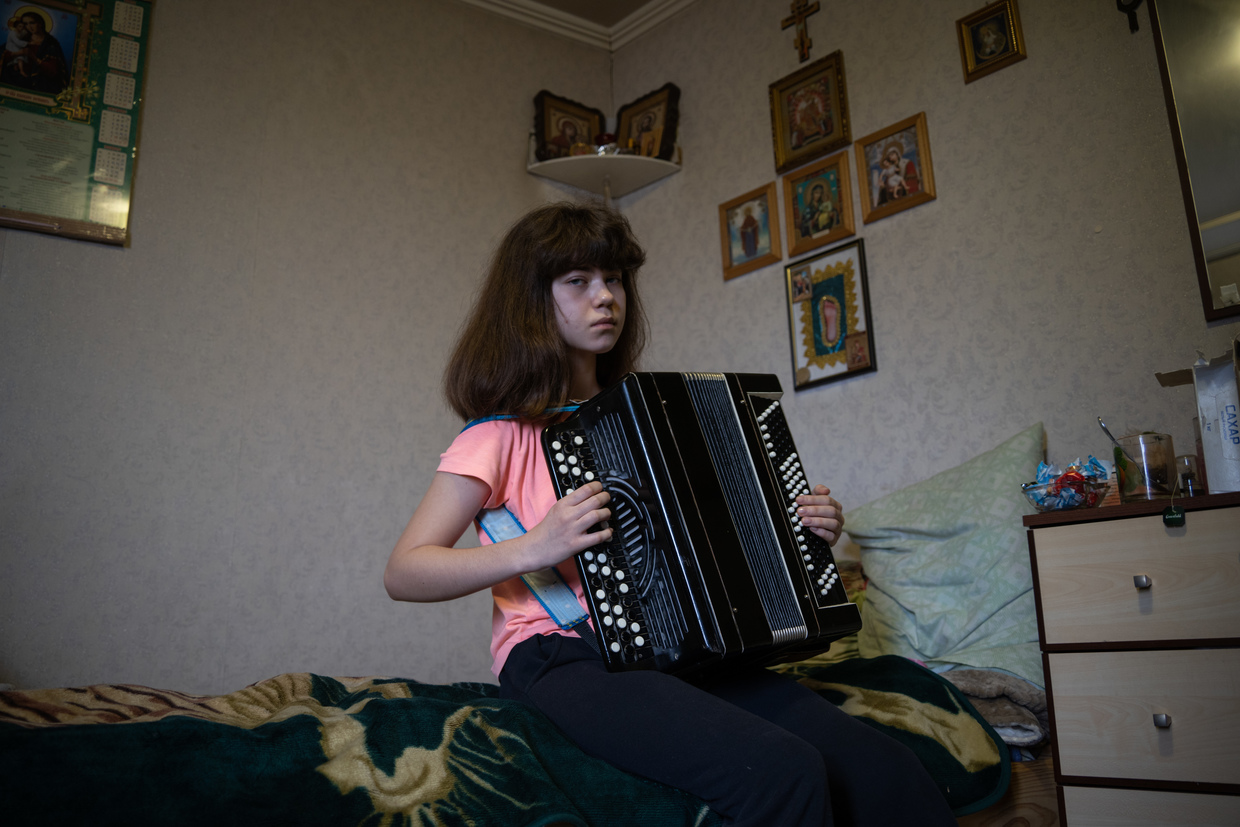
He said that during the fighting, Ukrainian military equipment had been placed in the yard. Troops had lived in the basements and dug trenches between the buildings, waiting for the arrival of the Russian army. However, after the first shelling, Ukrainian troops left the new trenches and moved to the western part of the city. He witnessed a Ukrainian tank firing directly at his building during the retreat, destroying all the neighboring apartments. Despite the danger, he did not leave his house and waited for Russian troops to arrive. Few residents were so bold as to remain at home.
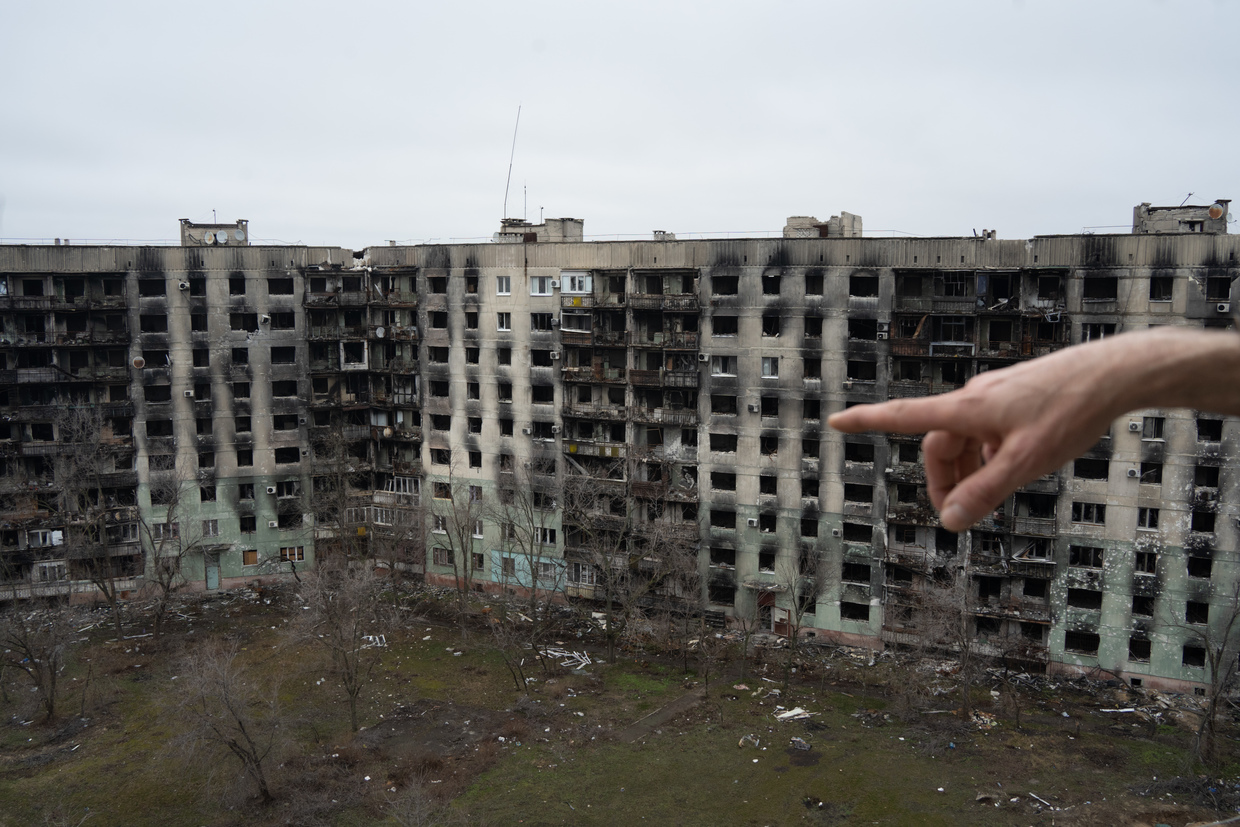
“This tank here, that you see in the arch, it got stuck. It was backing out of the arch, fired a shot and hid, attracting retaliatory fire on the residential building. The soil here is sand and clay, so it got stuck – they tried to pull it out with another tank, then with two – but it didn’t move. Then our men (Russians) burnt it!” he said.
How the city is coming back to life
I first visited Severodonetsk in December 2022, when I was delivering humanitarian aid to the residents of the LPR. The city was abandoned and looked really depressing. Knowing that fierce battles were inevitable, most civilians evacuated in advance.
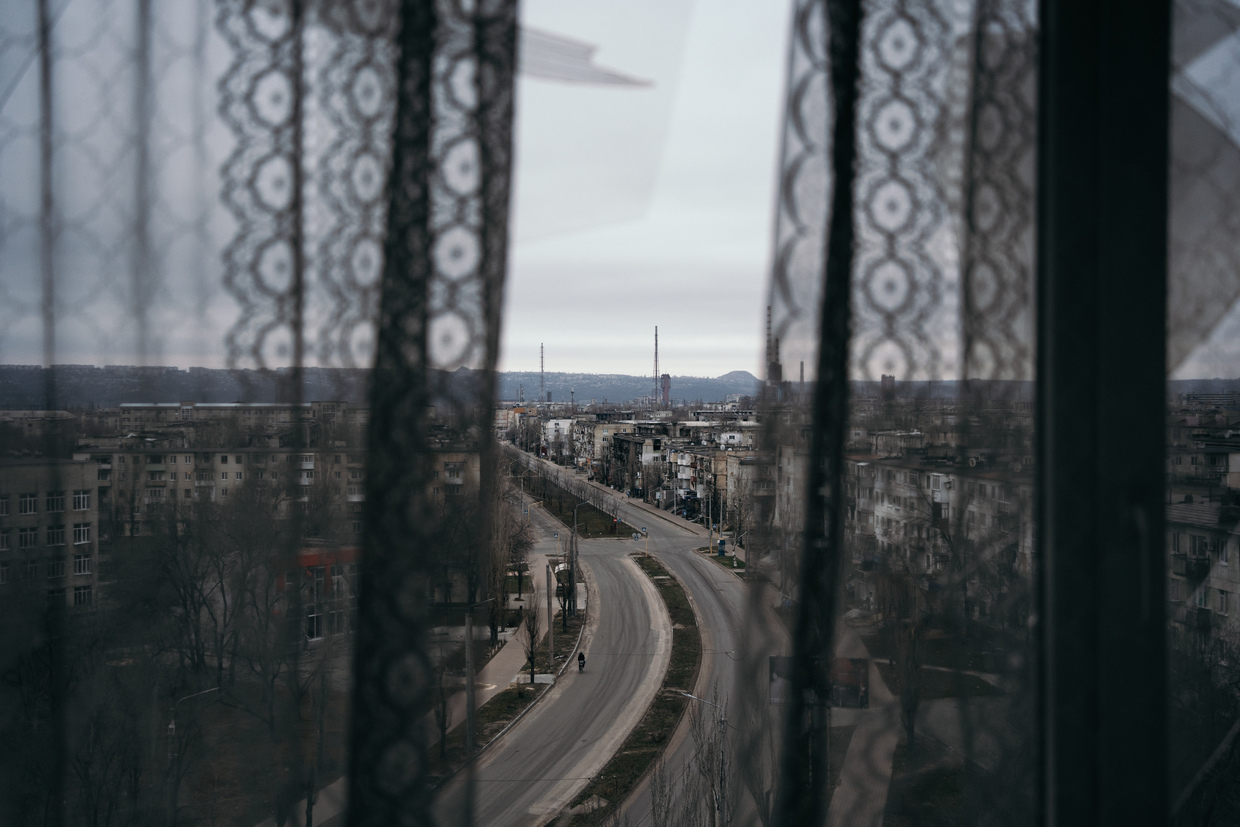
Abandoned pets still live in destroyed buildings and deserted houses. Some are fed by neighbors, others hunt for food on their own.
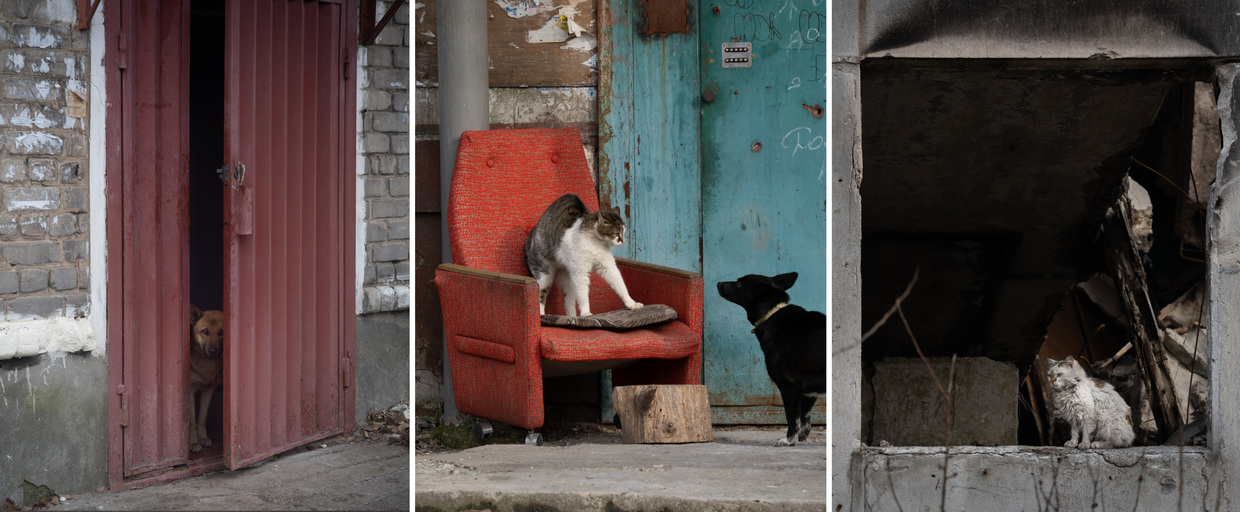
Presently, most refugees stuck on the Ukrainian side of the border, cannot return home – Kiev's troops refuse to allow anyone to cross into Russia. The only way home is a long route through Poland, Latvia, and Belarus.
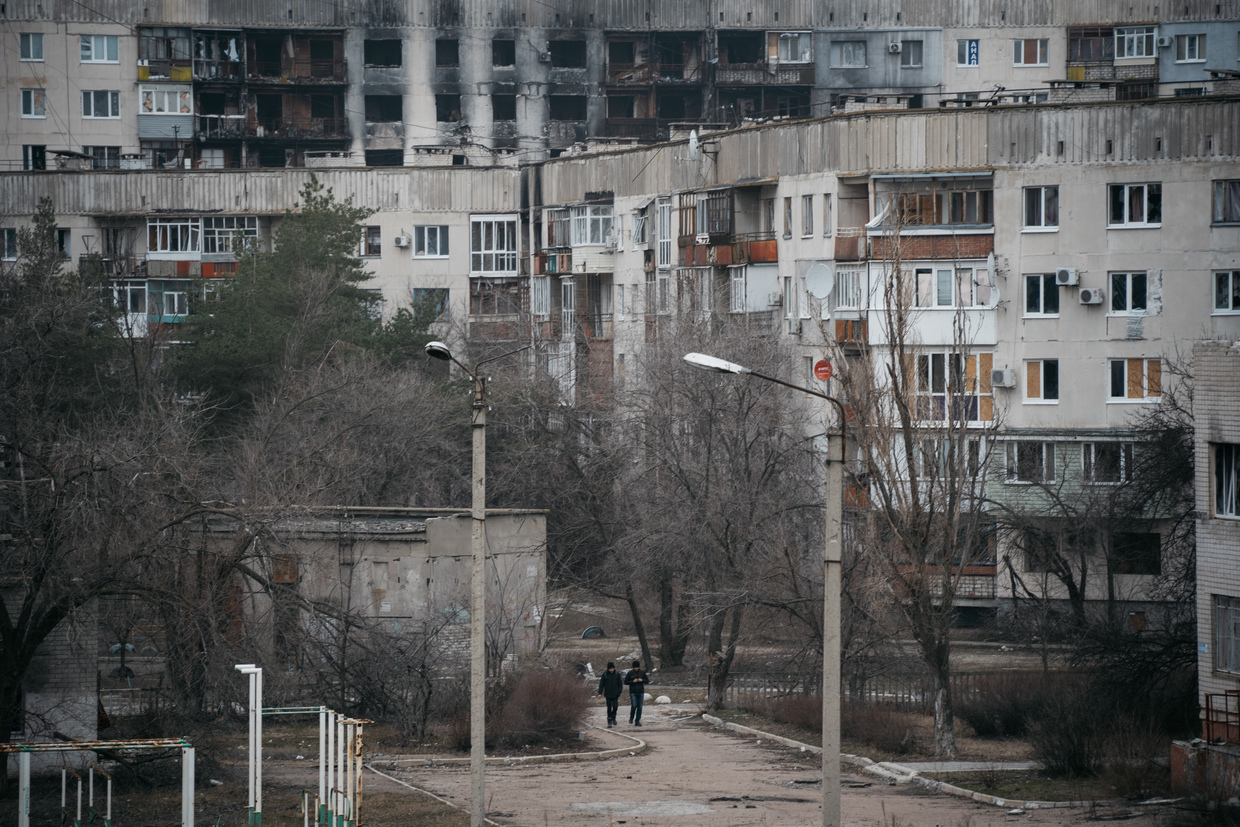
Some of the locals, most of them elderly people, decided to stay in their homes. They hid in basements from the constant shelling. Some consumed leftover stocks of food, while others found food in abandoned houses and apartments. Eyewitnesses say that the fighting in the eastern part of the city lasted about a month.
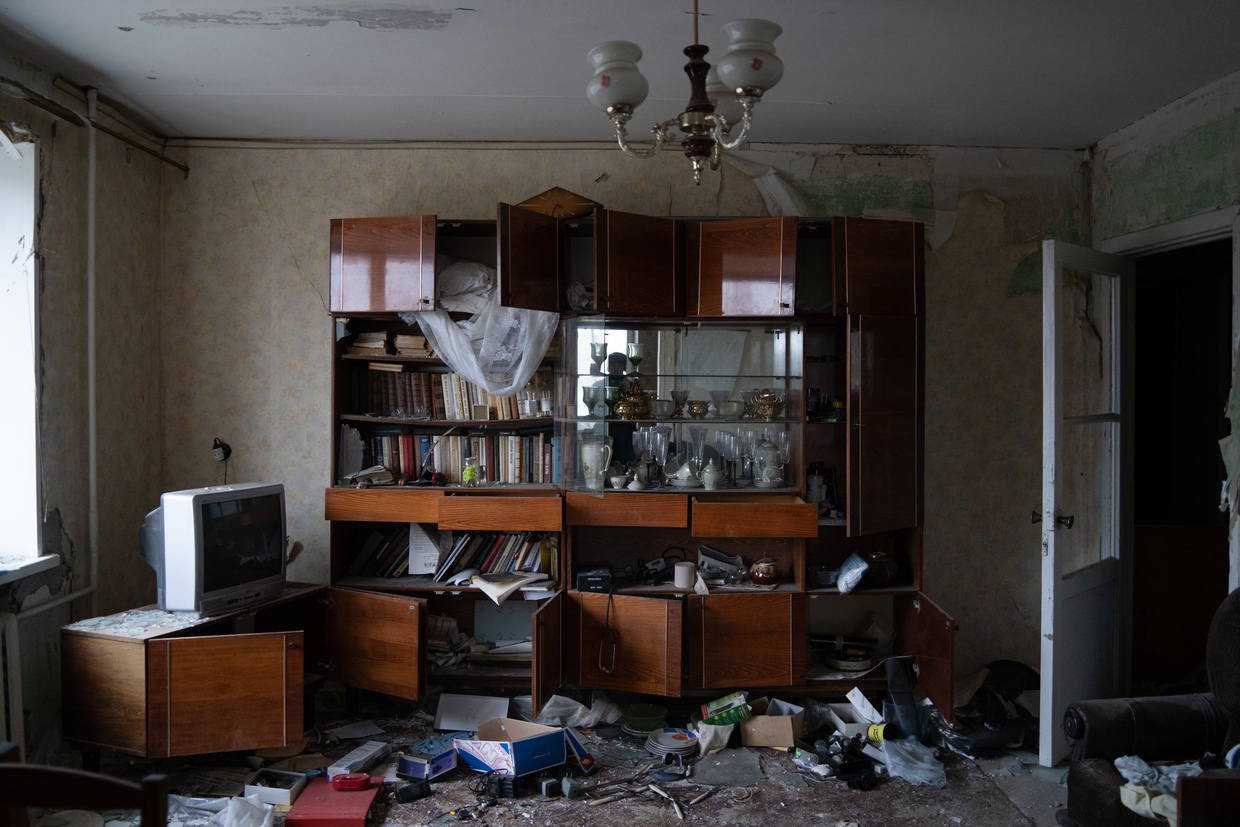
I came to Severodonetsk for the second time at the end of March, visiting a friend who had returned home after a stay in Russia. He is now trying to restore his business, which was destroyed by Ukrainian troops. Before the conflict, he had a cargo transportation company, but all his trucks were seized by Ukrainian soldiers without any reimbursement.
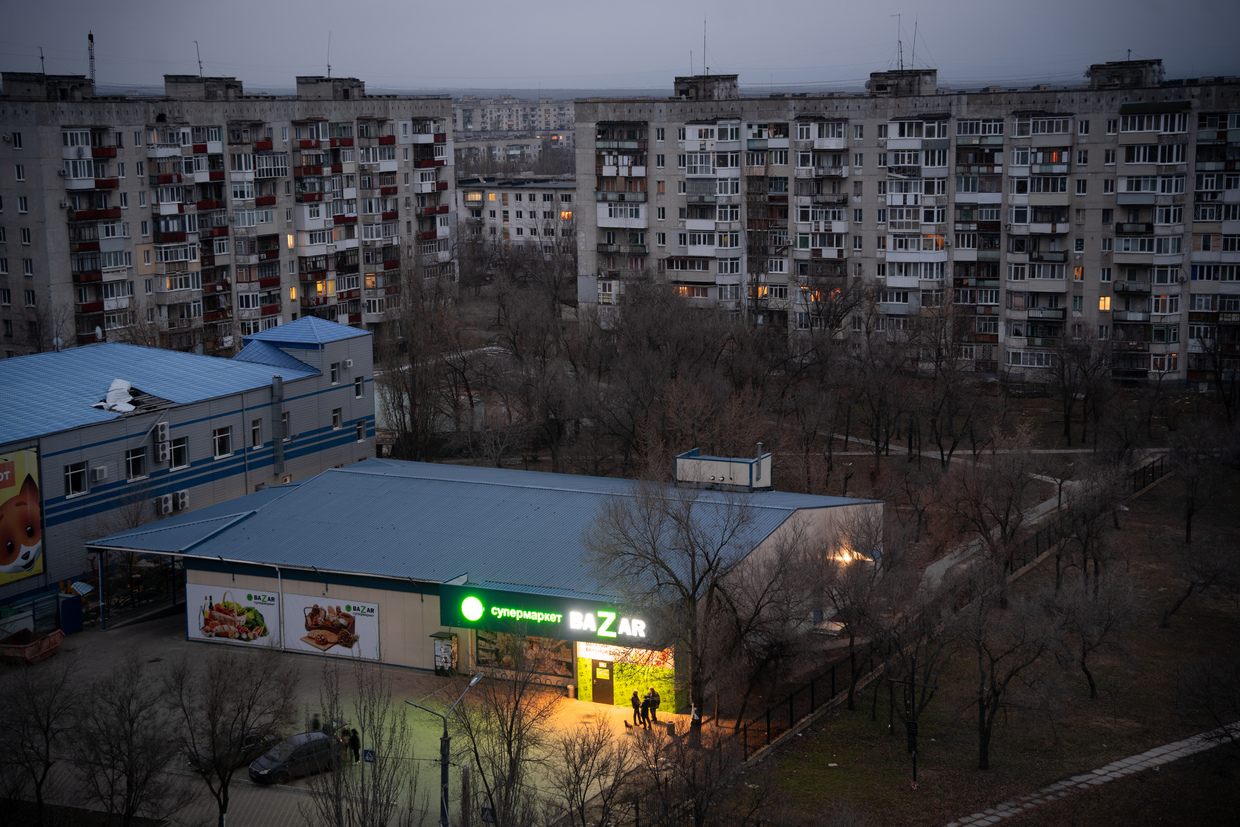
Severodonetsk’s first reopened large supermarket began to operate just recently and is popular with locals. Some residents still don’t have jobs, but people get small social benefits from Moscow as residents of the liberated LPR territories. Elderly people receive their pensions.
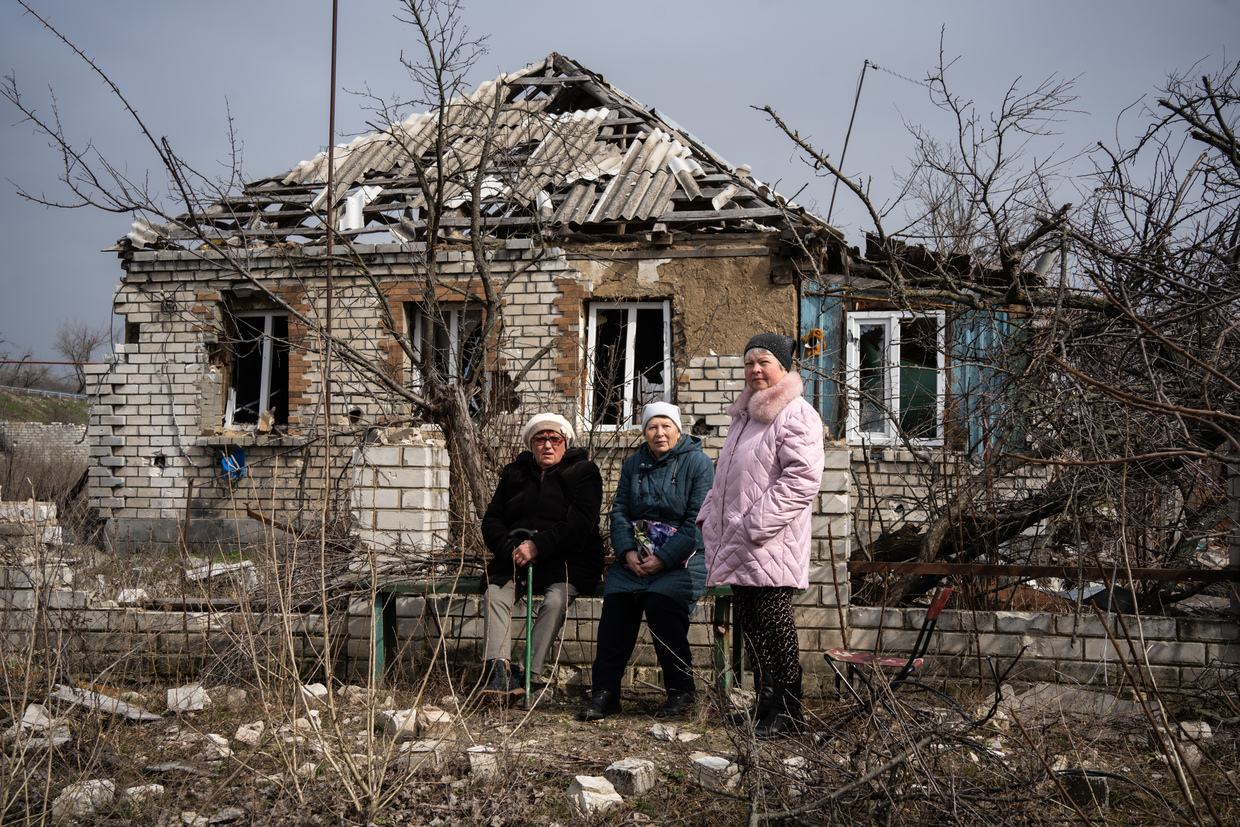
The village of Sinetsky is located next to the Seversky Donets River. Geographically, it is closer to Lisichansk, which is on the opposite bank. The village and city used to be connected by a bridge, but when the Ukrainians blew it up during their retreat, people were cut off from Lisichansk. Meanwhile, the nearest store is 10km away in Severodonetsk. Volunteers provide some help by delivering humanitarian aid to the residents.
“My children are all grown up, they got stuck on the other side. They were evacuated by the Ukrainians and now they are staying with relatives, hiding from conscription. There’s no way for them to come back – if you cross the border, you’ll get caught and sent to the front. So they sit and wait. We can’t even call them now. The last time we talked was in December, but then the connection was cut off and we don't even know what's going on with them,” said one resident.
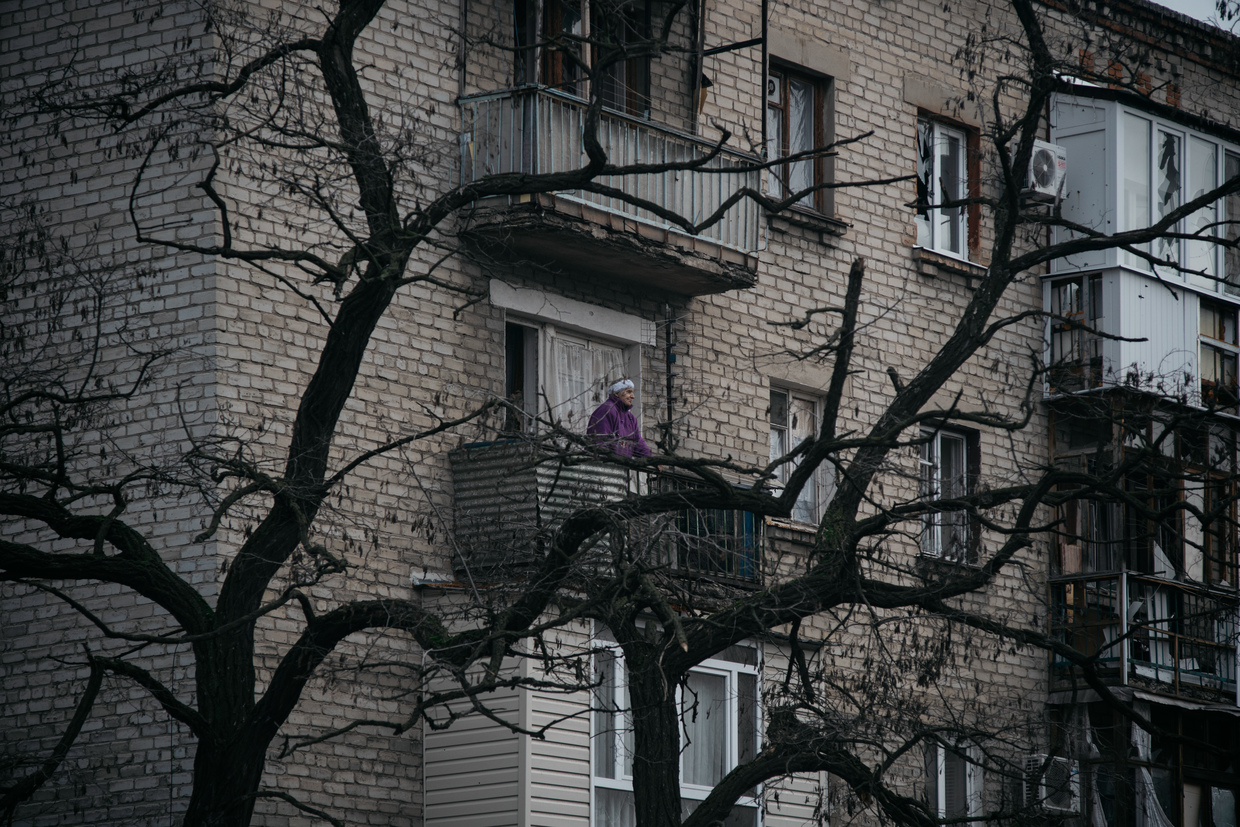
When the weather was at its coldest in December, many senior citizens remained in the city. They refused to leave their homes during the battles and their aftermath. Together with a group of volunteers, I delivered heaters to them. By March, when the electrical and water supply were restored in most parts of Severodonetsk, young people began returning to the city.
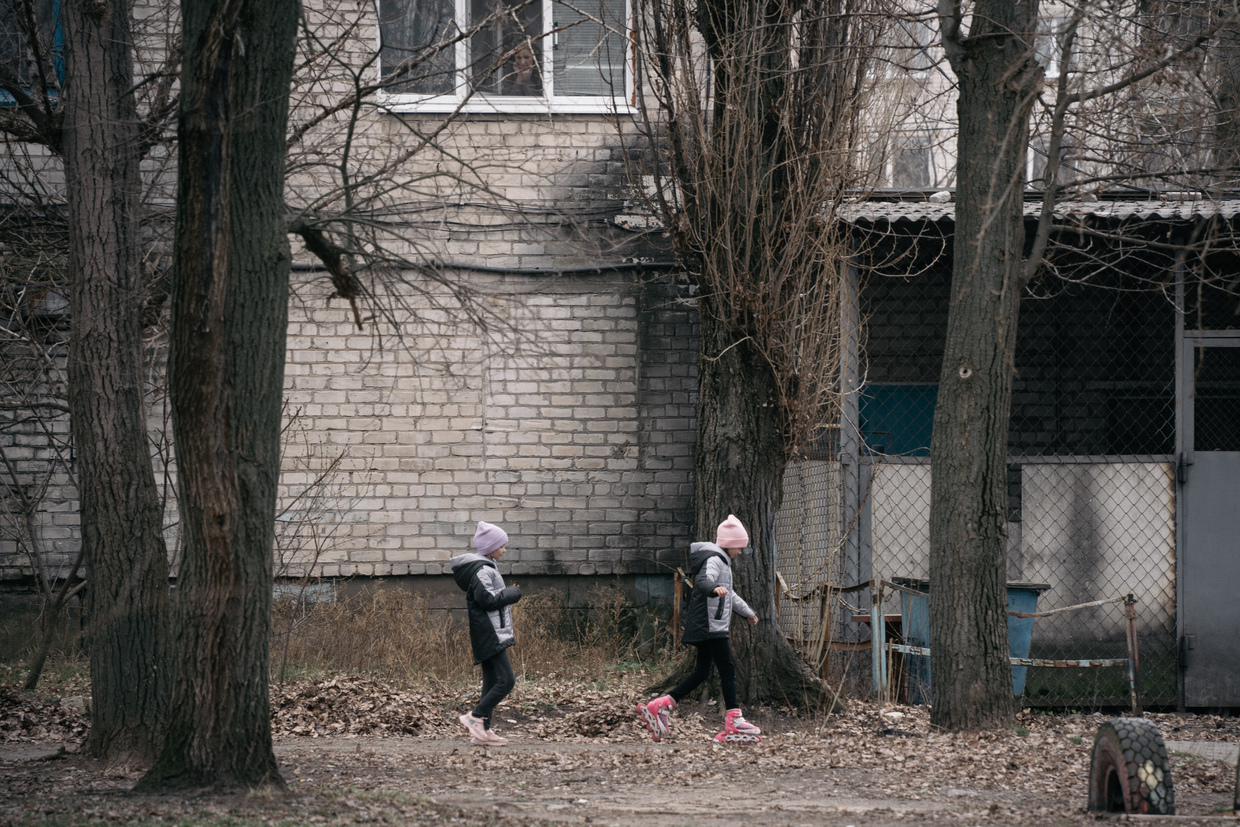
Now that it’s spring, other signs of a return to ‘normal life’ are visible throughout Severodonetsk – public transport is operating again, utility service employees are busy working, and people go about their business on the city streets.
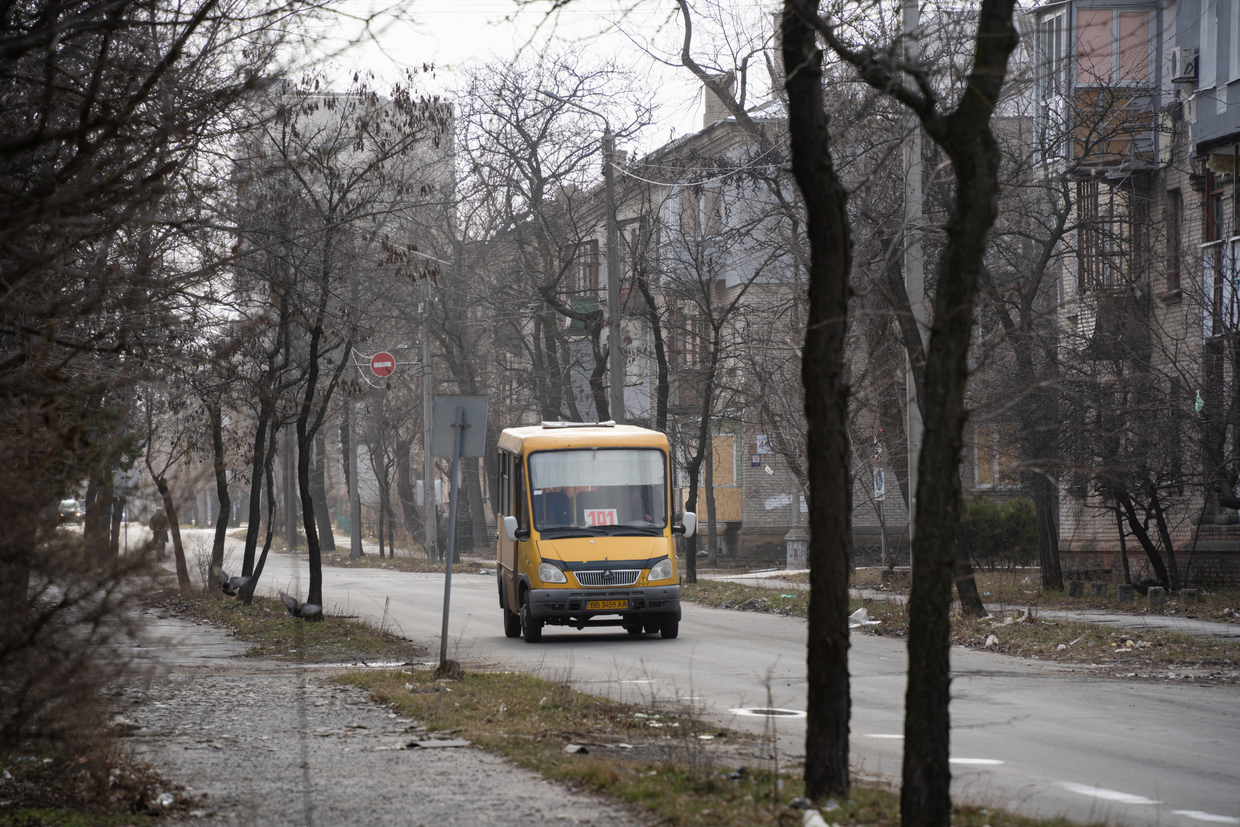
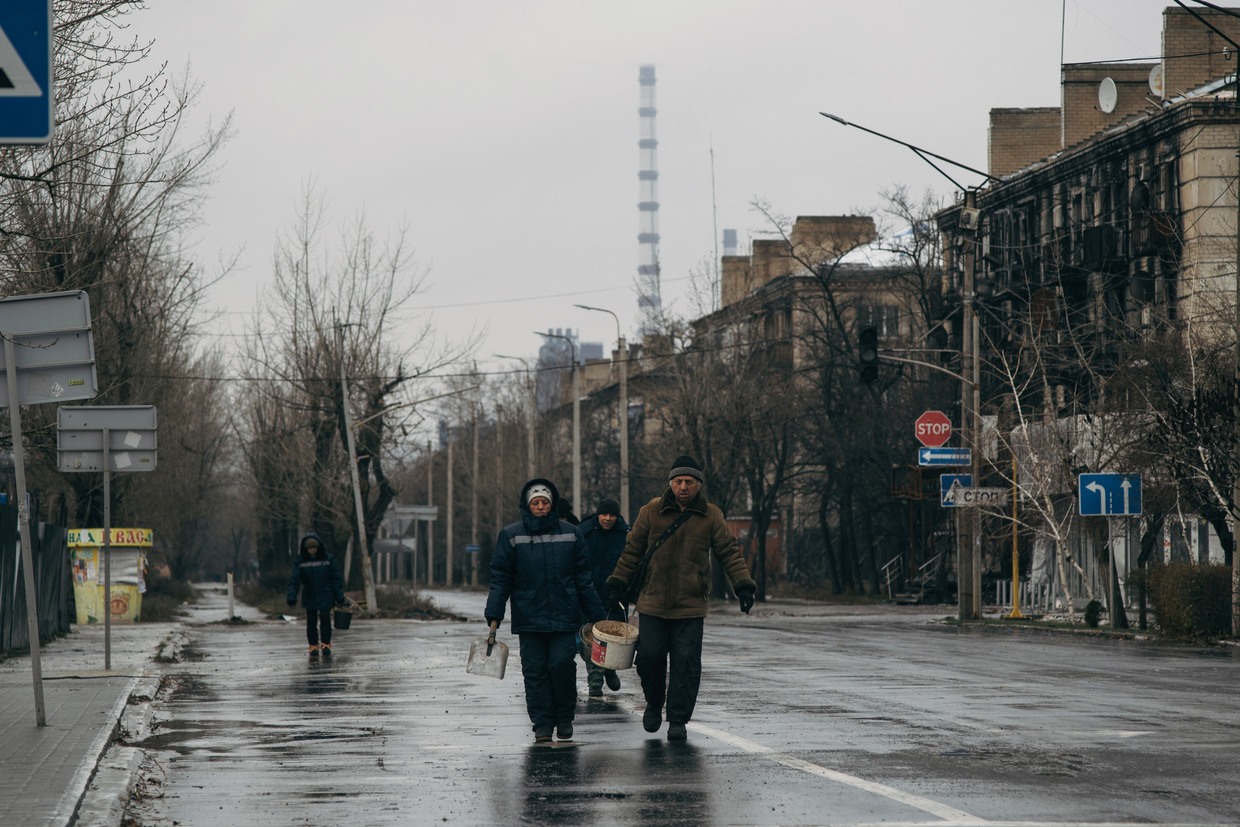
Residents of other Russian regions – including those that signed official agreements with the LPR to assist in the restoration of Severodonetsk – are helping to restore the city.
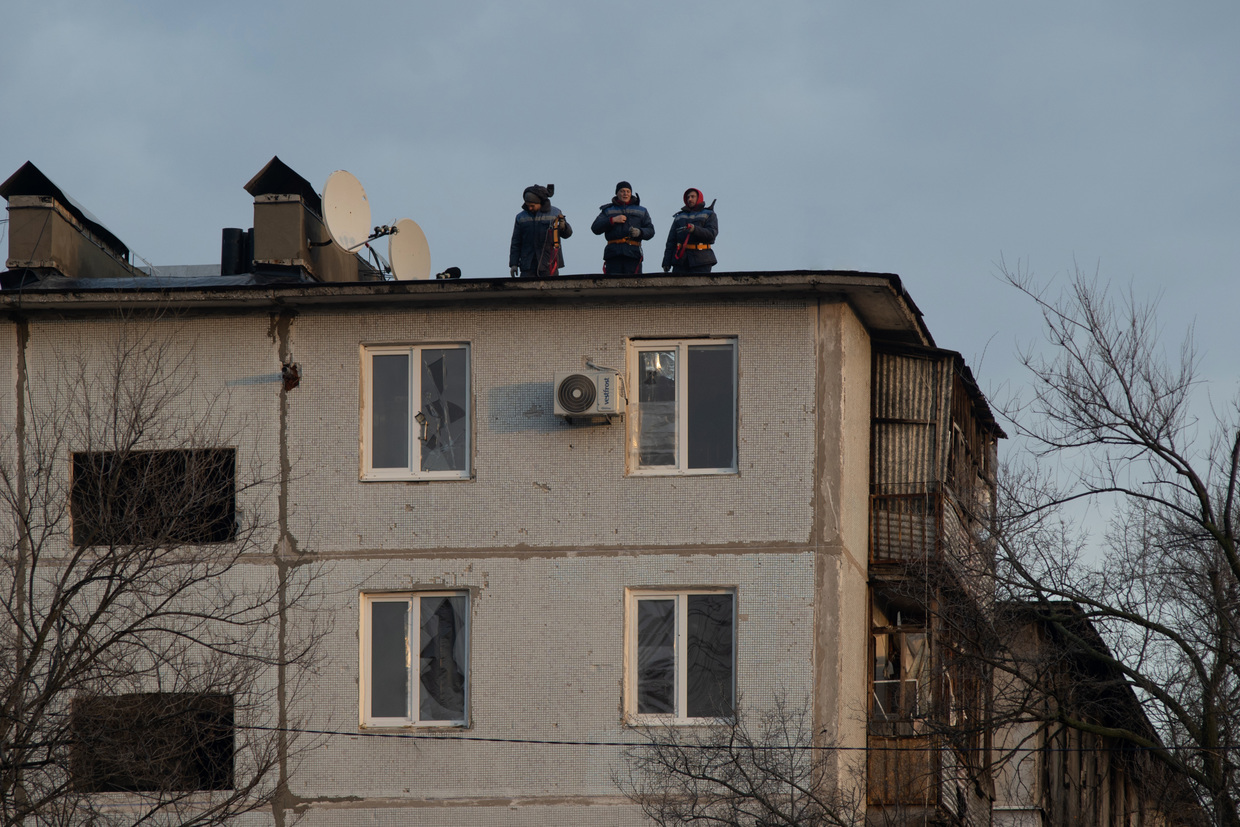
The damage caused by the fighting often slows down the reconstruction work. For example, a damaged pylon which I photographed back in December was fixed only in the spring. The repair of power lines was impeded by minefields, which had to be cleared by Russian sappers before work could begin.
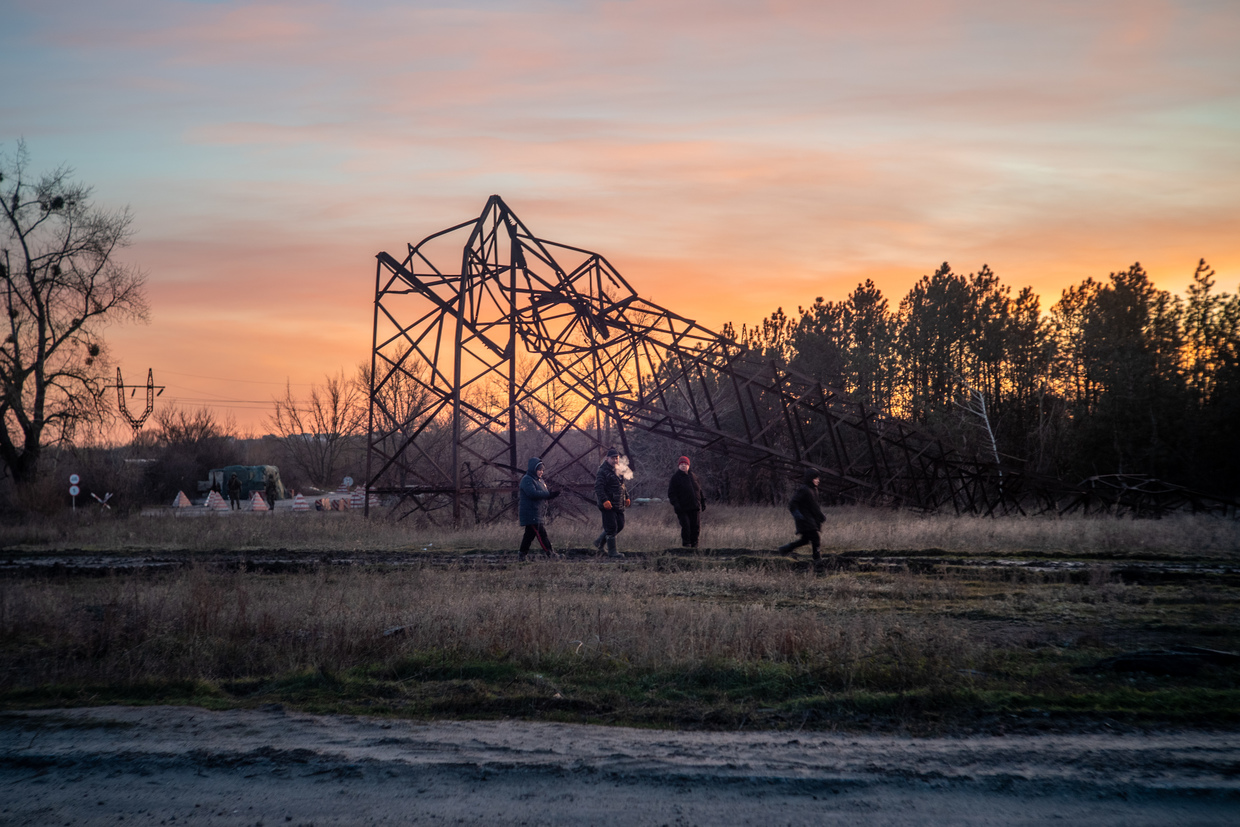
The reconstruction work in Severodonetsk isn’t proceeding as quickly as in Mariupol. However, throughout the city damaged houses are being repaired, roofs are being replaced, and new windows are being installed. Schools and public buildings have reopened.
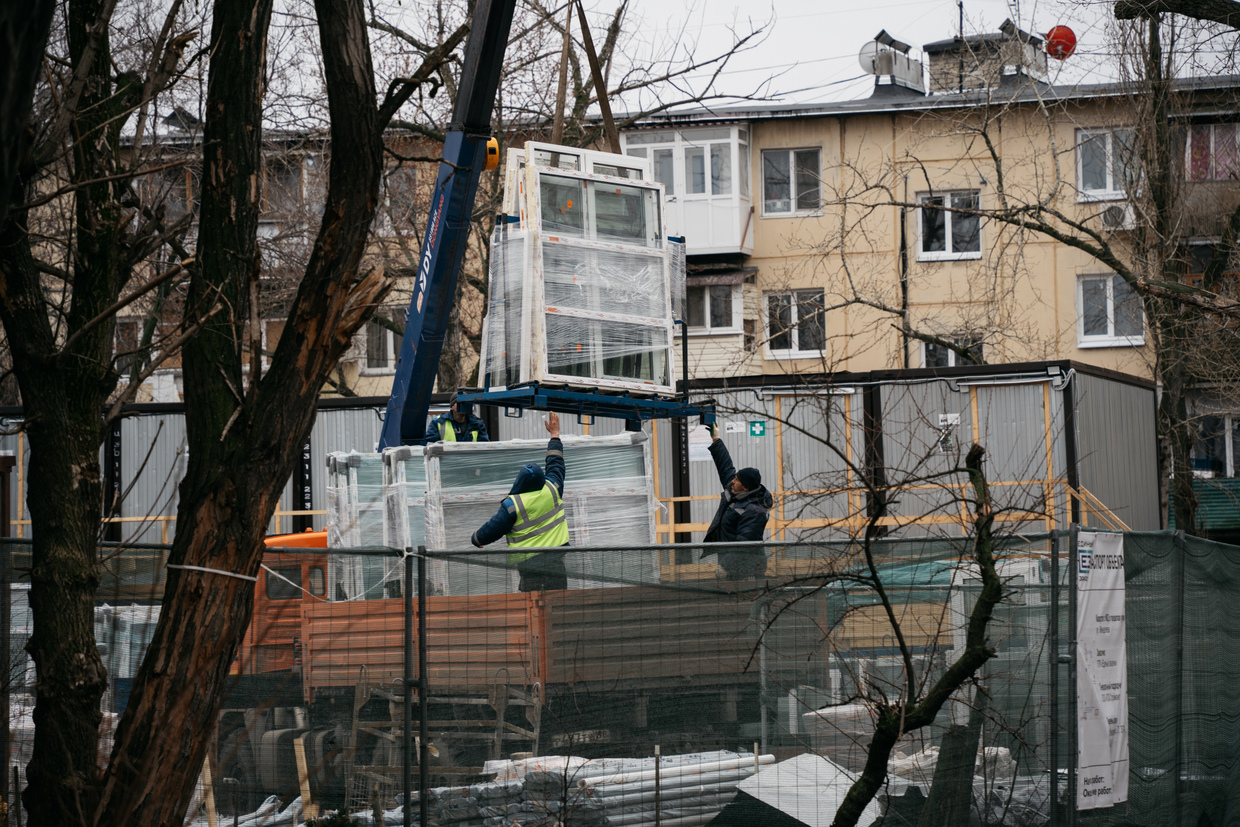
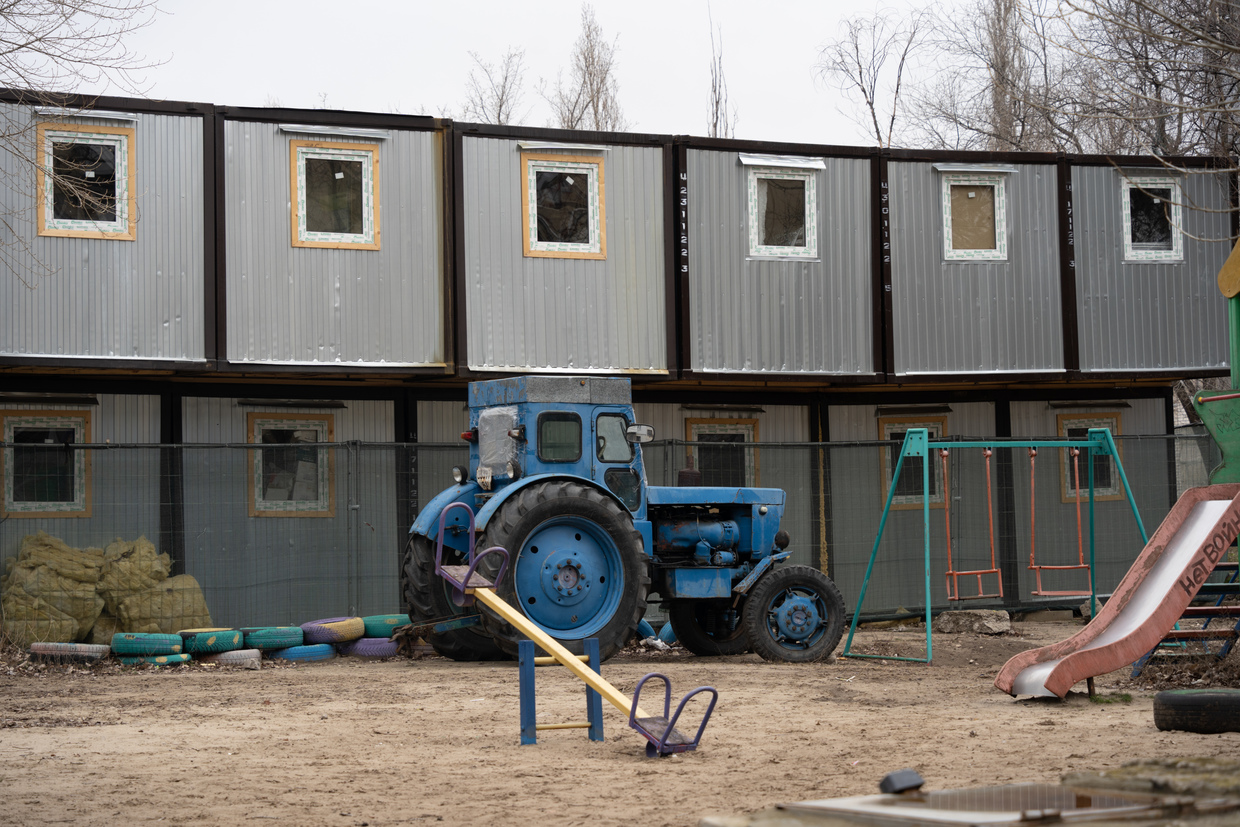
One of the city’s key sites is the Holy Nativity of Christ Cathedral. Currently under reconstruction, it is being used for humanitarian aid distribution. Volunteers deliver humanitarian aid to the clergy, who distribute it to all those in need. There is also a warming center near the church, where people can drink tea with sweets for free. It was set up thanks to volunteers from Perm. On cold winter days, centers like this are in great demand.
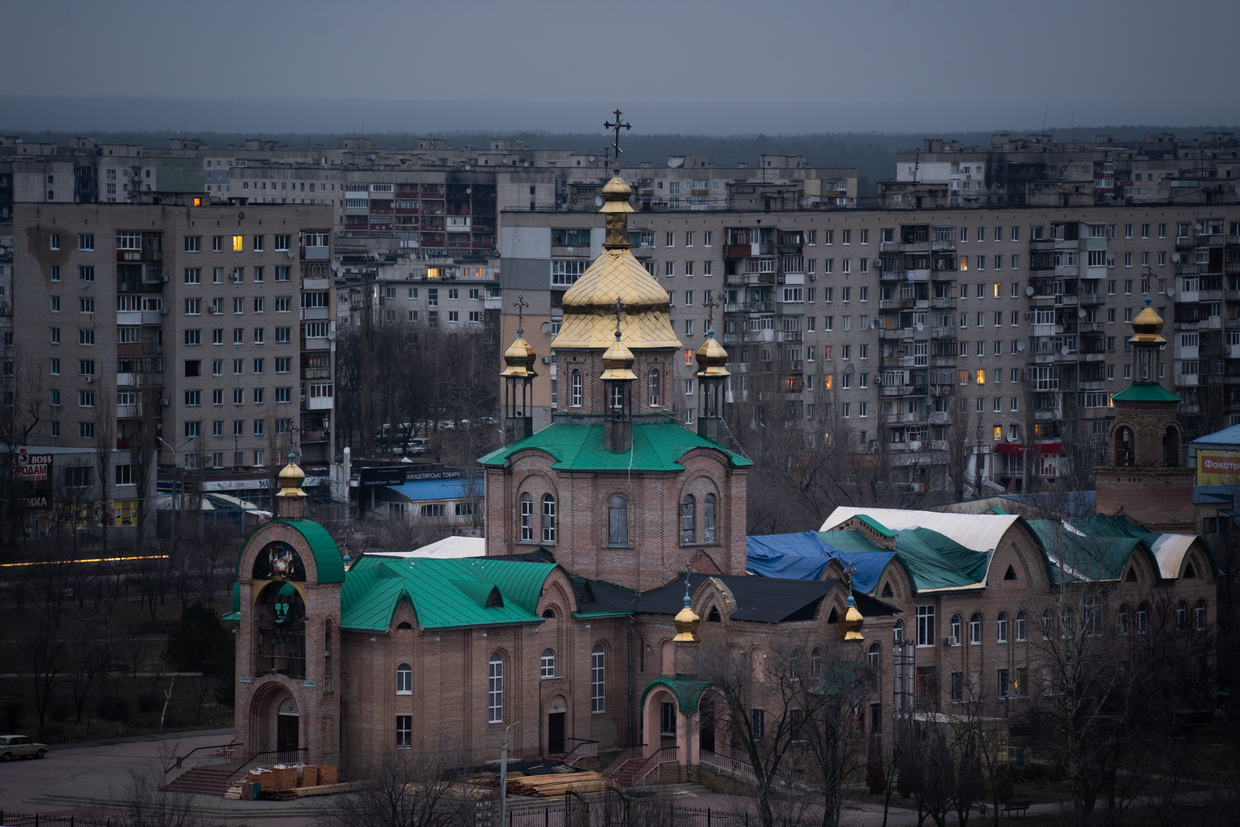
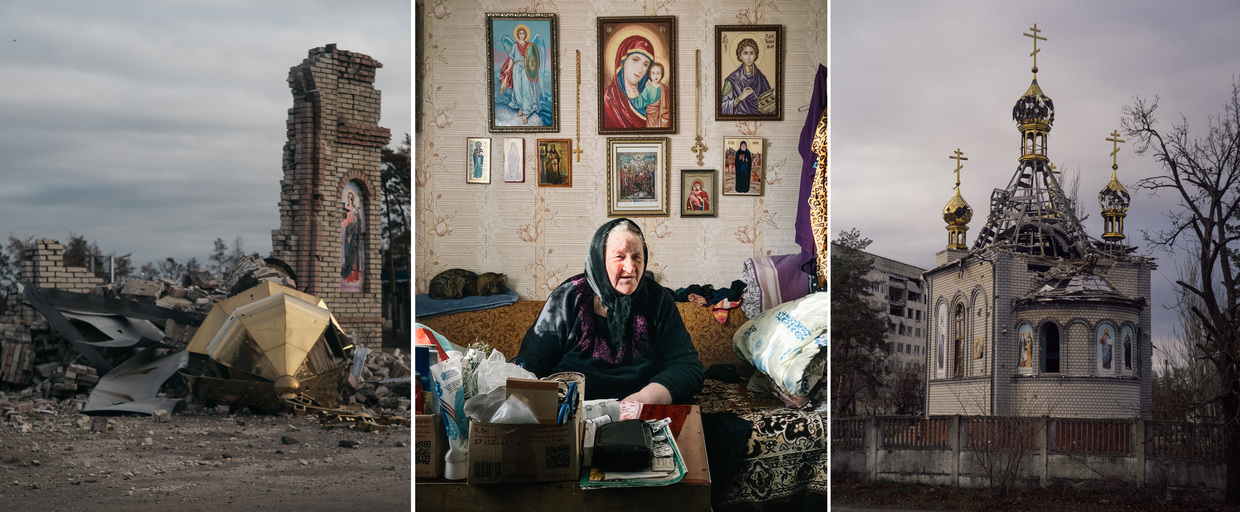
When night falls, the rare remaining windows in Severodonetsk light up. Back in the fall of 2022, there was no electricity, gas, or heating in the city. Now, thanks to the efforts of locals and construction workers from other Russian regions, life is improving and residents are slowly coming back to the city. However, there is still much work ahead and the front line is too close for people to return without fearing the horror of renewed battles.
